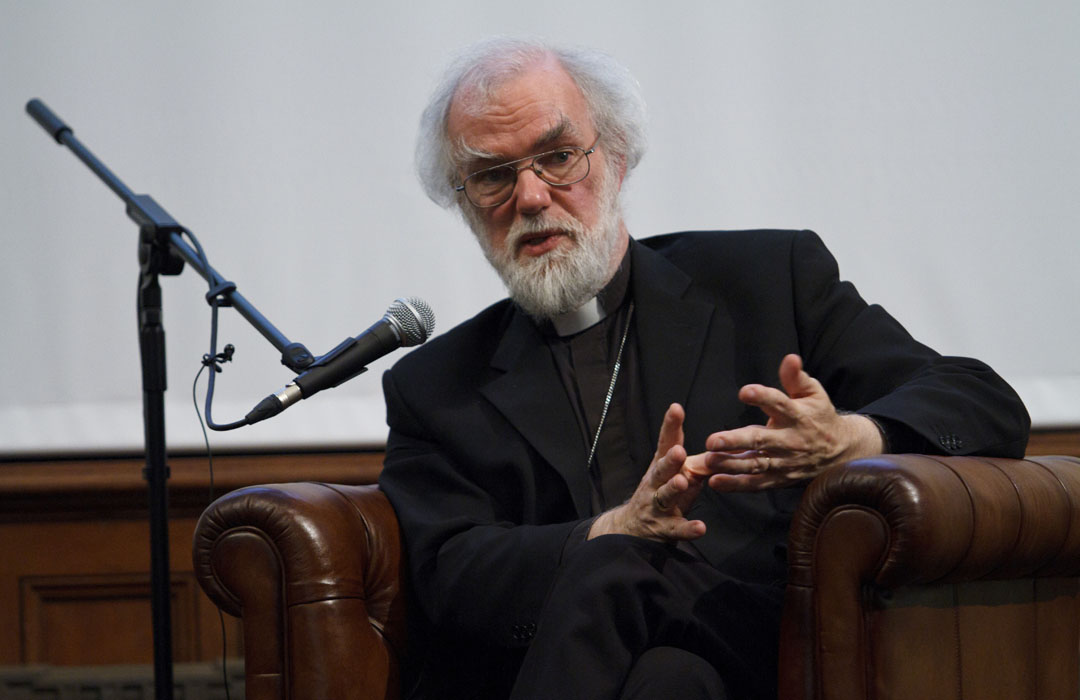19/06/2020
The bicentenary of the Act for the Abolition of the Slave Trade 1807 celebrated in 2007 provided unprecedented opportunities to acknowledge the Church’s complicity. In a debate in 2006, the General Synod of the Church of England voted to issue an apology for the church's role in sustaining the trade.
The then Archbishop of Canterbury Rowan Williams, told the debate that the Church ought to acknowledge its corporate and ancestral guilt.
He said:
“The Body of Christ is not just a body that exists at any one time; it exists across history and we therefore share the shame and the sinfulness of our predecessors, and part of what we can do, with them and for them in the Body of Christ, is prayerful acknowledgment of the failure that is part of us, not just of some distant 'them'.
“To speak here of repentance and apology is not words alone; it is part of our witness to the Gospel, to a world that needs to hear that the past must be faced and healed and cannot be ignored ... by doing so we are actually discharging our responsibility to preach good news, not simply to look backwards in awkwardness and embarrassment, but to speak of the freedom we are given to face ourselves, including the unacceptable regions of ... our history.”
Speakers in the debate acknowledged that while the Church had played its part in justifying slavery, Anglicans including Wilberforce or John Newton, the former slave ship captain turned minister and composer of the hymn Amazing Grace, were powerfully motivated by their Christian faith. Wilberforce brought bills before Parliament for 20 successive years until legislation to abolish the trade was passed.
The Church is mindful that slavery still exists today in other forms. The Church alongside other organisations is actively working to educate and reduce instances of slavery. In May 2019 the National Church Institutions issued a Slavery and Human Trafficking Statement in accordance with the Modern Slavery Act 2015.
This statement document considers both historic and current forms of slavery. The Church works closely with the Clewer Initiative with the aim of removing instances of human trafficking.
Recent research has highlighted other links between the wider Church and the slave trade. An article in the Daily Telegraph on June 19, 2020 highlights how a number of individual clergy received payments under 1833 Abolition of Slavery Act compensating them for slaves which they or their families ‘owned’.
A spokesperson for the Church of England said:
“Slavery and exploitation have no place in society.
“While we recognise the leading role clergy and active members of the Church of England played in securing the abolition of slavery, it is a source of shame that others within the Church actively perpetrated slavery and profited from it.
“In 2006 the General Synod of the Church of England issued an apology, acknowledging the part the Church itself played in historic cases of slavery.
We reiterate our commitments to support every effort by the Church and other agencies to oppose human trafficking and all other manifestations of slavery across the world.
“The Church of England is actively committed to combatting slavery in all its forms today, particularly through the work of the Clewer Initiative which works with our 42 dioceses to help support victims of modern slavery and identify the signs of exploitation in their communities.”
Recent events have also prompted debate about statues, monuments or other commemorations to those linked to the slave trade in public places in the UK, including some historic churches.
The Church of England’s Director of Cathedrals and Church Buildings, Becky Clark, said:
“The events of the past weeks in response to the tragic death of George Floyd have brought into focus the question of monuments to individuals who have participated in systemic and targeted discrimination or exploitation based on race.
“It is not possible to provide a single position which could apply to all circumstances and which would satisfy all legitimate viewpoints, however we acknowledge the real and justified anger of those who believe monuments in churches and elsewhere should be reviewed.
“We believe that dialogue within communities is the key to responding well to this and the local and national church should play a leading role by helping to facilitate the conversation. This cannot be dealt with purely as a discussion around historical monuments, and must encompass how we, as a broad and diverse society, value and represent people of all ethnicities and backgrounds.
“We acknowledge that dialogue alone is not sufficient, and must have real outcomes. These may include the alteration or removal of monuments. However this must be done safely and legally, and we do not condone illegal acts.
“Dialogue has to be open and honest. Churches and cathedrals are considering how they can address the issues raised by the Black Lives Matter movement and which demonstrations and direct action have brought into such sharp relief.”
